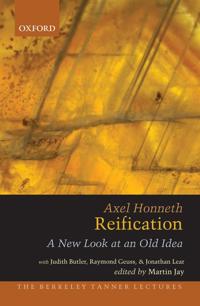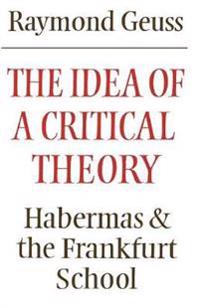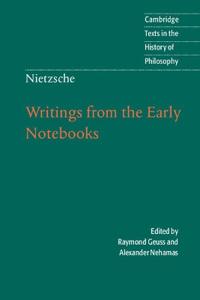Reification (Häftad)
avAxel Honneth, Judith Butler, Raymond Geuss
ISBN: 9780199898053 - UTGIVEN: 201201In the early 20th century, Marxist theory was enriched and rejuvenated by adopting the concept of reification, introduced by the Hungarian theorist Georg Lukacs to identify and denounce the transformation of historical processes into ahistorical entities, human actions into things that seemed part o[...]
The Idea of a Critical Theory (Häftad)
avRaymond Geuss
ISBN: 9780521284226 - UTGIVEN: 198110Habermas and earlier members of the Frankfurt School have presented critical theory as a radically new form of knowledge. It is differentiated from the natural sciences as essentially âreflectiveâ: the knowledge it provides guides us towards enlightenment as to our true interests, and eman[...]
Writings from the Early Notebooks (Pocket)
avRaymond Geuss, Alexander Nehamas, Ladislaus Lob
ISBN: 9780521671804 - UTGIVEN: 200905Nietzsche's unpublished notes are extraordinary in both volume and interest, and indispensable to a full understanding of his lifelong engagement with the fundamental questions of philosophy. This volume includes an extensive selection of the notes he kept during the early years of his career. They [...]
Outside Ethics (Övrig)
avRaymond Geuss
ISBN: 9780691123424 - UTGIVEN: 2005-11-28"Outside Ethics" brings together some of the most important and provocative works by one of the most creative philosophers writing today. Seeking to expand the scope of contemporary moral and political philosophy, Raymond Geuss here presents essays bound by a shared skepticism about a particular way[...]
Philosophy and Real Politics (Inbunden)
avRaymond Geuss
ISBN: 9780691137889 - UTGIVEN: 2008-07Many contemporary political thinkers are gripped by the belief that their task is to develop an ideal theory of rights or justice for guiding and judging political actions. But in "Philosophy and Real Politics", Raymond Geuss argues that philosophers should first try to understand why real political[...]
Politics and the Imagination (Övrig)
avRaymond Geuss
ISBN: 9780691142289 - UTGIVEN: 2009-12-07In politics, utopians do not have a monopoly on imagination. Even the most conservative defenses of the status quo, Raymond Geuss argues, require imaginative acts of some kind. In this collection of recent essays, including his most overtly political writing yet, Geuss explores the role of imaginati[...]









